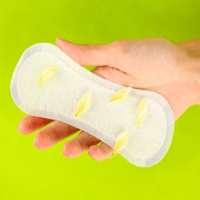 When the male partner isn’t producing enough sperm for conception, many couples turn to artificial insemination via sperm donation for help.
When the male partner isn’t producing enough sperm for conception, many couples turn to artificial insemination via sperm donation for help.
Sperm donation is also commonly used as a method to help conceive if the partner has an inherited disease that he doesn’t want to risk passing on, by women in homosexual relationships, and by single women who want to conceive.
How Sperm Donation Works. Donated sperm are used in artificial insemination and in-vitro fertilization. With insemination, the sperm is used to fertilize a woman’s egg inside her body. The woman prepares for this by taking fertility drugs to increase the number of eggs produced. Treatment takes place as close to ovulation as possible to boost the chances of successful fertilization.
Who Provides the Sperm? Registered sperm donors provide the sperm used in artificial insemination. They are not compensated for providing a donation and donors are usually limited as to the number of babies that can be conceived with his sperm donation.
As a registered donor, the man has been pre-screened for infections and inherited diseases. In most cases, the woman and her partner can choose a registered donor who resembles them.
Who Does the Baby Legally Belong to? For families who use registered donors, any children conceived will legally belong to the woman and her partner or spouse. Arrangements with private donors do not guarantee this legal status and the sperm donor may make claims to paternity. When children who were conceived thanks to sperm donation turn 18, they are legally able to learn the donor’s identity if they want to.
How Do I Know If Sperm Donation Is Right for Us? As with any situation involving the conception of a child, there are many things to consider about sperm donation. The biggest concerns of patients who are considering artificial insemination are:
- How does the male partner feel about raising a child that is not biologically his?
- How do we handle telling the child the truth about his or her conception?
- Will we feel threatened if the child wants to learn about the biological father after age 18?
Fortunately, you won’t be making these decisions in a vacuum. Your doctor and the donation agency can help you understand the pros and cons, and risks and rewards of sperm donation to help you decide if it’s the right choice for you.









